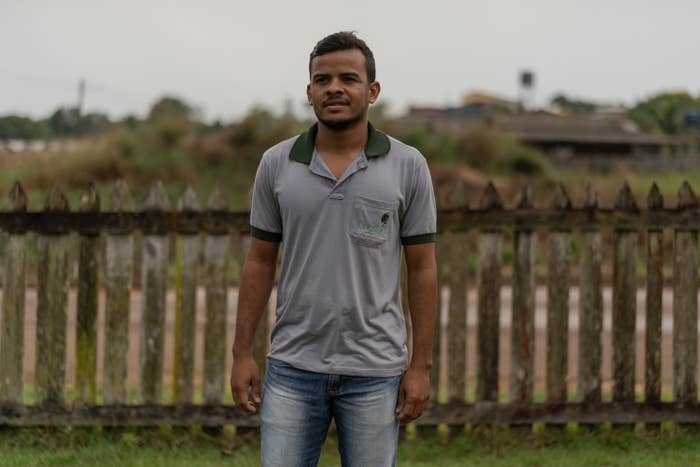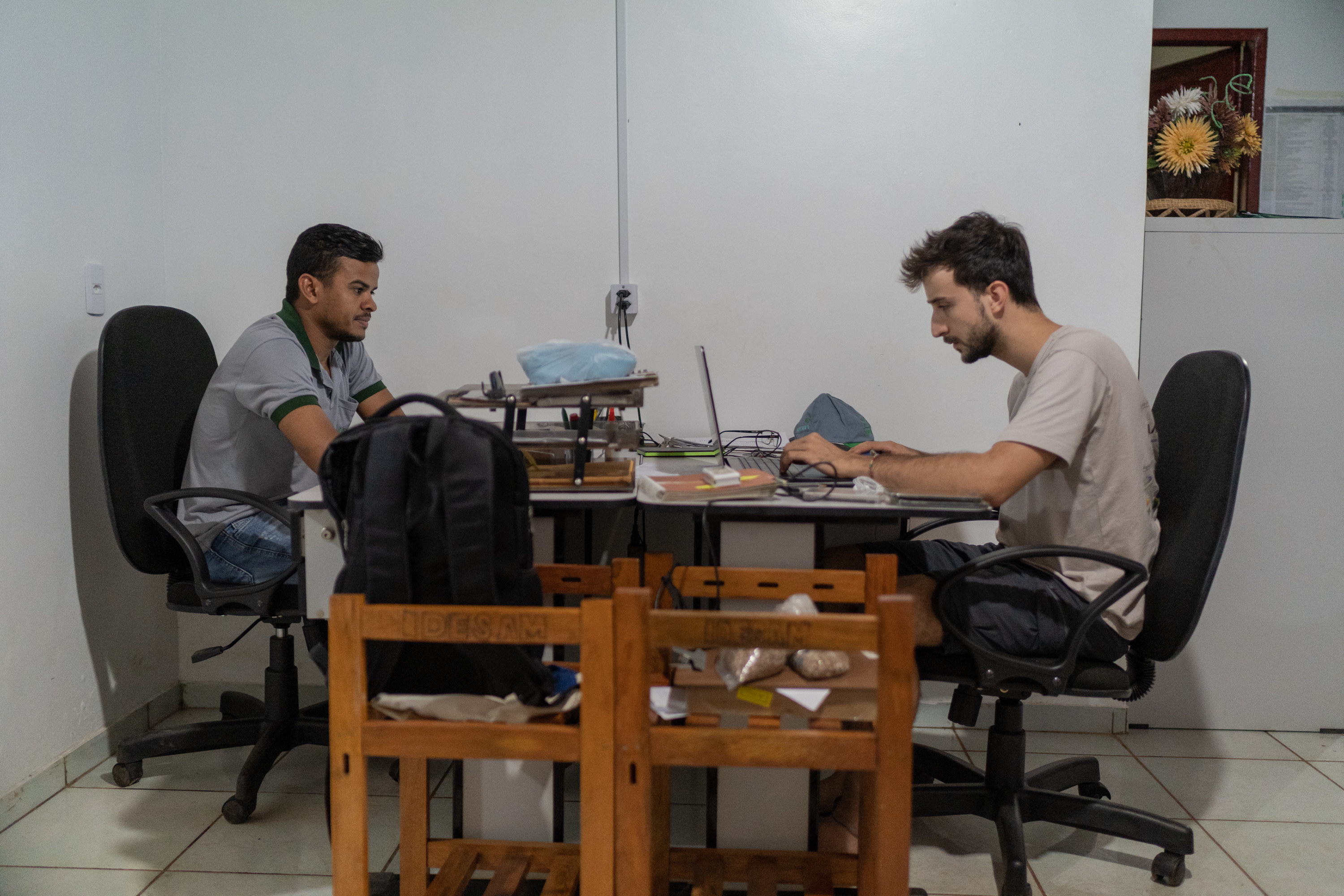
APUÍ, Brazil — Melk Alcântara had just come home and turned on the news when he saw the president suggesting he was responsible for the Amazon being on fire.
It was Aug. 21, and there had been more fires in the municipality of Apuí, in the state of Amazonas, than anywhere else in the entire rainforest. Brazilian President Jair Bolsonaro responded by telling the world that NGOs might be setting fires deliberately in order to make him look bad, despite a total lack of evidence.
"It could be, I'm not saying it was, a criminal action by these NGO guys," Bolsonaro said, blaming NGO employees like Alcântara, who are, in fact, actively working to prevent fires and deforestation.
Alcântara, 25, was deeply offended. “We work damn hard,” he told BuzzFeed News. “[Bolsonaro] made an accusation generalizing about all NGOs. Idesam has its work recognized here in Apuí,” said Alcântara, referring to the NGO he has worked for over the last five years since graduating as a forestry technician.
According to Brazil’s National Institute for Space Research (INPE), there have been 93,947 fires recorded in the Amazon so far this year. During the same period in 2018, there were 57,968.
The sharp rise in fires has triggered global alarm over the environmental impact, as well as a crisis for the Bolsonaro administration, which strongly advocated the development of agribusiness and gold or cassiterite ore exploration in the Amazon.

Alcântara was born in Apuí. His parents were farmers who came to the south of Amazonas in the 1980s, encouraged by the government to populate the Amazon and develop agriculture. His parents eventually gave up the land, and Alcântara became a forestry technician to work toward sustainable development in the Amazon.
Five years ago, he joined the Institute for Conservation and Sustainable Development of the Amazon (Idesam) as an intern and never left. Six other people work at the offices of Idesam, which has been operating in Apuí for over 10 years and partners with international NGOs such as Greenpeace.
Idesam receives financial support from the federal government, even under Bolsonaro, as well as from international resources such as the Amazon Fund. That fund, however, is now at risk from the withdrawal of countries such as Germany and Norway and from cuts by the federal government.
Idesam’s Forest Cities program encourages families to extract income from the Amazon, such as copaiba oil production, which can be used to make varnishes and lacquers and can have health benefits, without destroying the forest. BuzzFeed News has reported on how illegal deforestation is driving the recent spate of fires: Farmers have said that in Apuí, land cleared for cattle is changing hands for 20 times the price of the same area with standing forest.
In addition to being one of the worst-affected areas for fires, Apuí is a deforestation hot spot as ranchers from neighboring states encroach on its forest.
Even an environmental NGO worker like Alcântara understands the pressures local farmers face. “A forest site has no value. Between having the forest standing and having something to feed for the family, it's pretty obvious what the person is going to do,” he said.

Every day, Alcântara speaks to local farmers and ranchers about how to minimize deforestation, such as the practice of silvopasture, which integrates trees with livestock in a mutually beneficial way. With silvopasture, cattle are reared on tree-lined patches of land, allowing one portion to recover as the cattle are directed to another piece of land. He also gets his hands dirty fighting deforestation himself. Last week, Alcântara had to deliver almost a ton of fertilizer to a farmer in a district 18 miles from the city.
But some people will not listen. Fires in the region are a cultural issue, and for many farmers, setting fire to the pasture is just the historic way to renew the grass used to feed cattle.
Alcântara said that Bolsonaro's lashing out at NGOs was classic behavior by the president, distracting people from the real problem "by placing blame on others."
But in Apuí, it’s rare to find residents who are critical of Bolsonaro. It's the only city in the interior of Amazonas in which he beat the Workers’ Party candidate, Fernando Haddad, in last year's presidential election.
Alcântara and his colleagues said residents have never bothered to find out exactly what Idesam is.
But now, after hearing so much about NGOs from Bolsonaro, the residents of Apuí have begun asking Idesam’s employees, “But are you NGOs?”
This post was translated from Portuguese.

